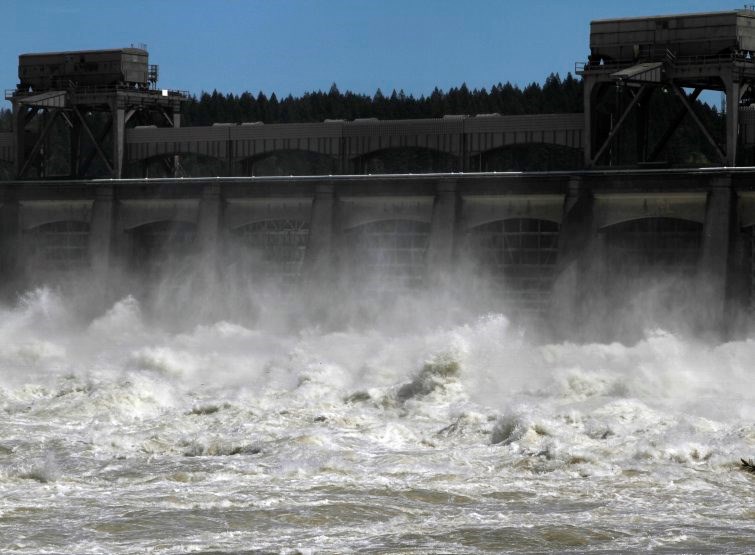This week, Canada and the B.C. government began a process to re-negotiate the Columbia River Treaty with the U.S.
To exclude the Ktunaxa, Secwepemc and Syilx Okanagan Nations from the negotiations, despite these nations being title and rights holders of the Upper Columbia Basin and having borne the brunt of the destructive impacts of the existing treaty in their territories, is a blatant betrayal of any commitment to reconciliation.
The current Columbia River Treaty is focused primarily on electricity generation and flood storage. As a result, the water levels at reservoirs in B.C.’s Kootenay region fluctuate hugely, with negative impacts on ecosystems and recreational opportunities.
Concerned residents and First Nations in B.C., along with tribes and stakeholders south of the border, see the re-negotiation of the treaty as a unique opportunity to bring back salmon and restore ecosystems.
After serious flooding along the lower Columbia in 1948, the U.S. wanted better flood control. It also wanted more electricity. Premier W.A.C. Bennett wanted to develop the Columbia’s hydro potential to supply B.C.’s growing industrial economy as well. The resulting 1964 treaty changed forever the environment of the Kootenay region and the lives of its residents.
Under the treaty, the U.S. would pay Canada a total of $64.4 million and in exchange, B.C. would provide a massive amount of storage behind the Mica, Keenleyside and Duncan dams. B.C. was entitled to half the downstream benefits, namely power generated in the U.S. thanks to B.C.’s new reservoir storage.
Canada also agreed that the U.S. could build the Libby Dam on the Kootenay River in Montana, flooding some of the most valuable big game habitat in North America.
There was no significant consultation with Kootenay residents, and none whatsoever with First Nations. The treaty compounded the adverse effects of the Grand Coulee Dam, which cut off the chinook and sockeye salmon runs in the upper Columbia and Slocan rivers respectively.
People living along the Arrow Lakes were displaced to make way for the Keenleyside Dam. Those not displaced saw the environmental effects of both the flooding and an annual variation of up to 20 metres in water levels. The treaty has no requirement to mitigate environmental or social issues caused by the dams.
The environmental impacts have been much higher in B.C. than in the U.S. While the three B.C. reservoirs experience huge fluctuations in water level, there are minimal drawdowns from Lake Roosevelt above the Grand Coulee Dam. This injustice continues to negatively affect First Nations and Kootenay communities to this day.
Today, we have a chance to improve this situation. We can use our 21st-century understanding to redress the effects of 1960s thinking.
B.C. should push to include ecosystem function as an objective in the treaty. Electricity generation and flood storage do not need to exclude protection of the health of the Columbia River.
First Nations and non-Indigenous communities, fishing and recreation, regional tourism, migrating salmon and wildlife all depend on a healthy river system.
The U.S. has spent millions trying to maintain salmon populations downstream of the Grand Coulee Dam, with little success. Changes to reservoir-operating regimes proposed by local residents would assist with this objective and with restoring salmon fisheries elsewhere in the Columbia River Basin.
This would require complex modeling of flow patterns, comparing proposed changes with the present operating regime and factoring in the future impacts of climate change on river flows.
Including First Nations as parties to the negotiations rather than sidelining them is another critical step in undoing the damage. This would be in line with the commitments of Canada and B.C. to upholding the UN Declaration on the Rights of Indigenous Peoples.
Let’s not squander an important opportunity to improve the health of river ecosystems in the Columbia River Basin on both sides of the border and to improve the way decisions are made, with respect for Indigenous peoples.
Because our communities depend on it.
Caitlyn Vernon is campaigns director for Sierra Club B.C. Ken Farquharson is a retired engineer who worked on the Arrow and Mica dams.



